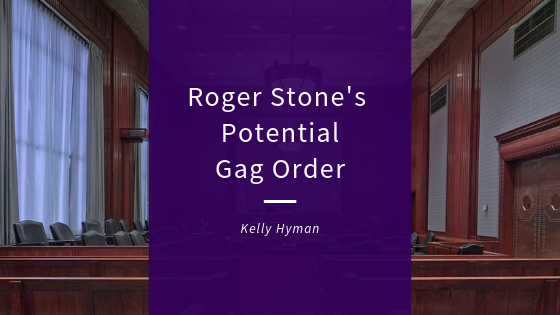Roger Stone may be facing more legal hardships as the judge in his case mules a potential gag order during his criminal trial. US District Judge Amy Berman is still deciding on whether it’s necessary to impose a court order on Stone and his counsel to limit any public commentary.
A federal grand jury indicted Roger Stone on January 24th, 2019 on one count of obstructing Congress, five counts of making false statements to Congress, and one count of witness tampering. Stone has been an adviser to President Donald Trump and helped advise him through his 2016 presidential campaign. His indictment is apart of special counsel Robert Mueller’s probe on Russian interference during the 2016 presidential election. He has pleaded not guilty to these charges.
Judge Berman has expressed her concern over how intense public interest has already been on this case with only the indictment underway. This public interest has only been further fueled by Stone and his team, who are well-known for his public statements. This order would not necessarily stop Stone altogether from making public comments but would limit his ability to galvanize the story. Pretrial hearings are expected to begin on March 14th, and the trial is expected to begin in the fall.
Stone faces a potential sentencing of up to 20 years in prison for his witness tampering charge that stems from his involvement in the WikiLeaks controversy during the 2016 presidential election. The prosecution of his case will be run by Mueller’s team and the US Attorney’s office in Washington, DC.
These gag order tactics have also been applied elsewhere in Mueller’s probe. Specifically, Paul Manafort’s criminal case has a gag order imposed early on by another judge. While this did not necessarily avoid all communication with the press.
If Judge Berman does decide to follow this lead, it will be up to her to determine the extensiveness of the gag order and outline the specifics of the order to Stone and his team. From there, it will be up to Stone, a self-described dirty trickster, to follow the court order if he wants to avoid further legal repercussions.

